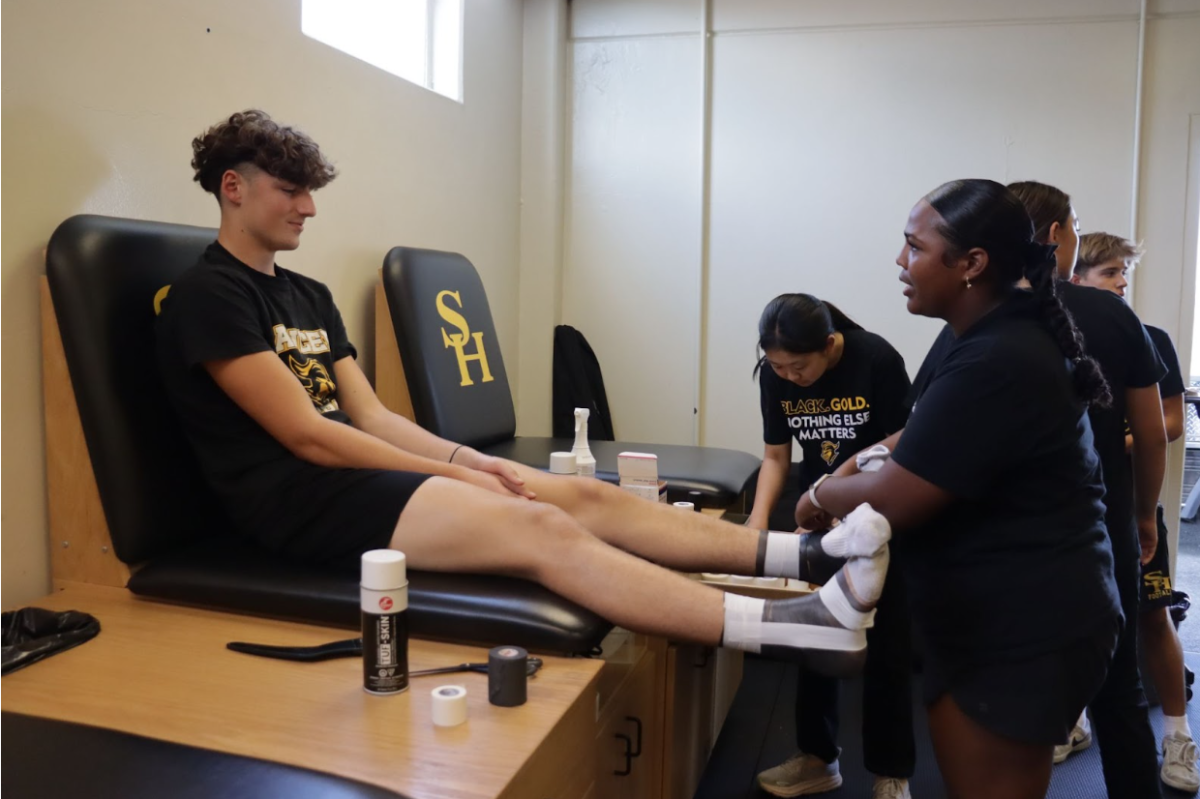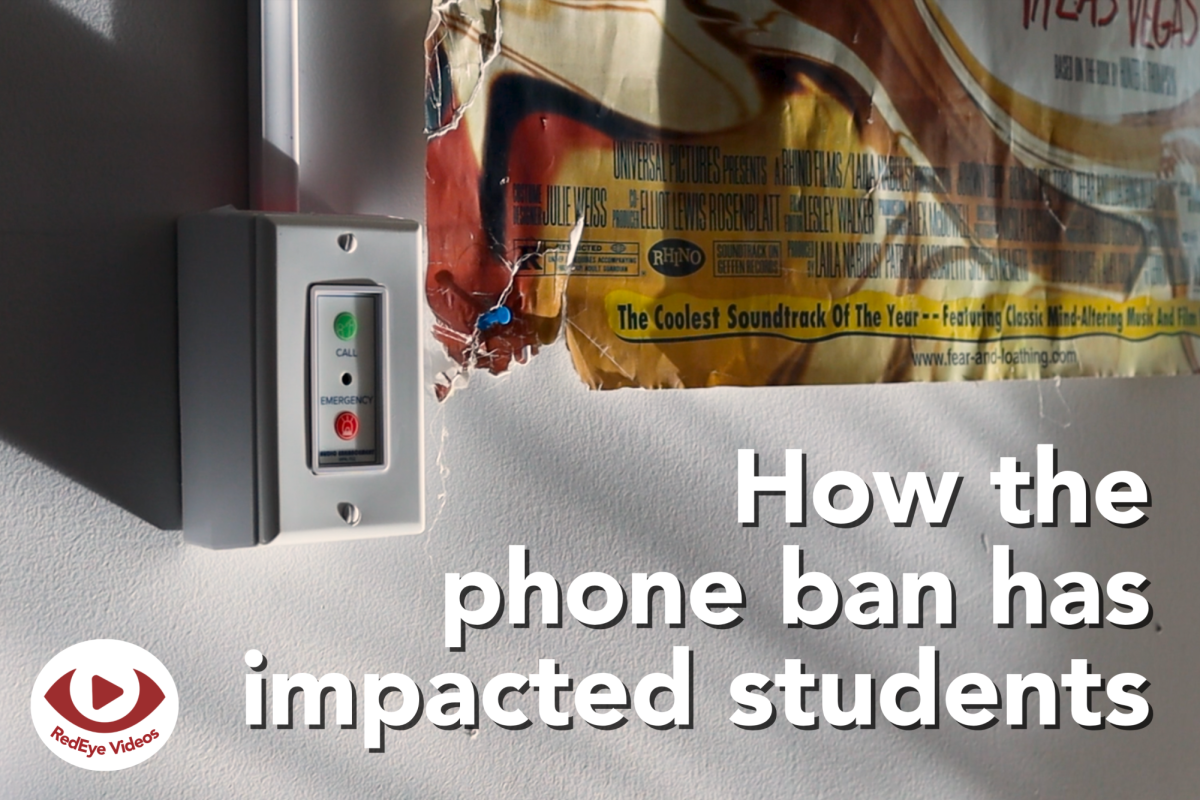Amid the quiet shuffle of papers and classroom conversations, a student’s mind drifts to a worrisome thought: what would happen if my parents were deported? With legal immigration pathways narrowing and deportations without due process rising nationwide, some wrestle with a fear that’s rarely discussed at school. For FUHSD schools — home to thousands of students with immigrant backgrounds — it has become more important than ever for students and school communities to be educated on their rights and protections.
“I do feel a bit anxious about how my family would be affected,” freshman Wendi Sun said. “If my parents were to be deported right now, even though they have a green card, they’d have a hard time coming back.”
Across the United States, the frequency of U.S. Immigration and Custom Enforcement raids have increased under President Donald Trump’s administration. Recent incidents include roughly 230 undocumented Venezuelan immigrants who were deported without due process despite federal court orders initially blocking the action, and the case of Mohsen Mahdawi, a Columbia University student who was nearly deported without due process. In moments of confrontation, knowing your rights can mean protecting yourself from unlawful detainment.
Recently, college students, especially international students, have been hit hard by revoked visas and increased scrutiny on minor documentation errors, such as typos on immigration forms or accidental discrepancies between course enrollments. These decisions often come with no transparency or warning, threatening pathways to future careers and mental well-being. When such due processes are bypassed with seemingly no explanation, it sets a precedent for unchecked enforcement that may extend to high schools.
“My parents and their friends have been talking about ICE and they’re definitely on the lookout,” Sun said. “Right now, it hasn’t been affecting this area that much, but I’m pretty sure it’ll reach us soon.”
Local raids, such as the San José ICE raid in January, have caused a massive influx of calls to the Rapid Response Helpline of Santa Clara County, with much of the public worrying that the raids focus on apprehending not only criminals, but also their law-abiding neighbors. These actions violate constitutional protections outright. Now, even citizenship, long seen as a cornerstone of safety, no longer guarantees the same protection it once did.
“I heard a lot of people talk about how their apartment was blocked off because ICE was raiding their neighbors,” freshman Lexi Barabanova said. “In my father’s apartment complex, the family across the hall was arrested. It’s the fact that they show up to your door that creates an atmosphere of unease.”
Recognizing this, Superintendent Graham Clark released an email statement to FUHSD staff members on Jan. 22 that detailed the district’s stance on immigration enforcement actions and resolved that “all FUHSD programs are considered a safe haven for students and families to the fullest extent allowed by law and in accordance with our Board Policies.” Clark also announced that law enforcement agents will not be permitted on campus without a judicial warrant. In the same statement, he referred students to resources they can reach out to for help, like Santa Clara County’s compilation of legal resources and the California Governor’s Offices’ resource webpage on immigration for California families.
“The board put forth a resolution at our first board meeting on the 14th before Trump’s inauguration,” Associate Superintendent Trudy Gross said. “So our board was already feeling like they wanted to be proactive and say we are here to remind our families and students that all means all, that we care about everybody and that we are behind everybody.”
Despite the availability of resources, many students still do not feel well-informed. In a survey sent out to Lynbrook students, several shared that they would like to see immigration rights addressed in advisories or webinars where they will have access to visual media like presentations. Others noted that learning what to do in an encounter with ICE could be beneficial as well.
“I don’t necessarily feel unsafe right now, but I wouldn’t say I feel supported,” Sun said. ”Nobody’s really talking about these issues at Lynbrook. The only time I hear anything about Trump’s policies is on the news.”
It is also important to acknowledge the broader context of anti-immigrant rhetoric that has increased in recent years. Growing national hostility, spurred on by hateful comments on social media, has normalized suspicion toward the immigrant community. Examples include Trump falsely claiming that undocumented Haitian immigrants eat pets on a national broadcast and the casual use of the unwelcoming term “aliens,” which heavily stereotypes the immigrant community. While overt discrimination may not be as prominent at Lynbrook, it is still crucial for communities to be aware of misinformation or fearmongering that can spread from such inflammatory political statements.
“Being Hispanic makes you almost feel like an outsider because of statements that the current administration is making,” junior Ilan Garcia-Peña said. “Even if you’re a citizen and even if you were born in this country.”
In periods of such uncertainty, students play a crucial role in creating a supportive environment. A demonstration by students at Homestead High School and Fremont High School earlier this semester showed this influence. On Feb. 5, 200 students walked out of their classes holding signs and raising flags in solidarity with the Latino community, protesting the Trump Administration’s deportations of undocumented individuals. Encouraging open conversation and sharing resources are simple yet powerful steps that can bring together community. Through such actions, one can empower others in the community and provide them with the strength to fight back against the situation.
Now more than ever, it is important for students to know their rights. Even if one is arrested or detained by ICE, due process mandates an objective legal hearing in order to ensure that the deportations have legal basis. Everyone, regardless of their immigration status, has fundamental rights under the U.S. constitution, including the right to remain silent when approached by law enforcement and the right to legal representation in court. In the case of an ICE stop-and-search, students should look out for real search warrants with an official judge signature. Being aware of these rights will allow students to better protect themselves and focus on the fact that knowledge is power, hopefully reducing fear.
“One of the eye-opening things for me was how many resources are already available throughout Santa Clara County,” Gross said. “I would say that it is more about making sure people know what’s available and what we can share with families. We had already started giving people access to run copies of red cards — cards detailing your legal rights — and so it was doing those things and making sure they were out there.”
This story was originally published on The Epic on May 19, 2025.







































